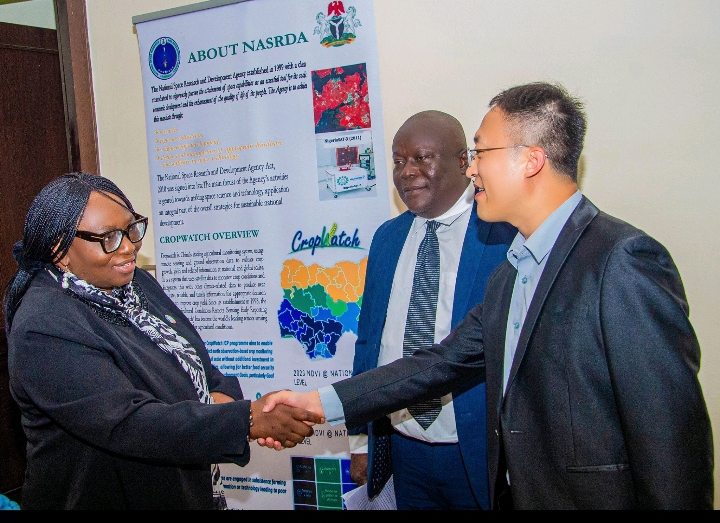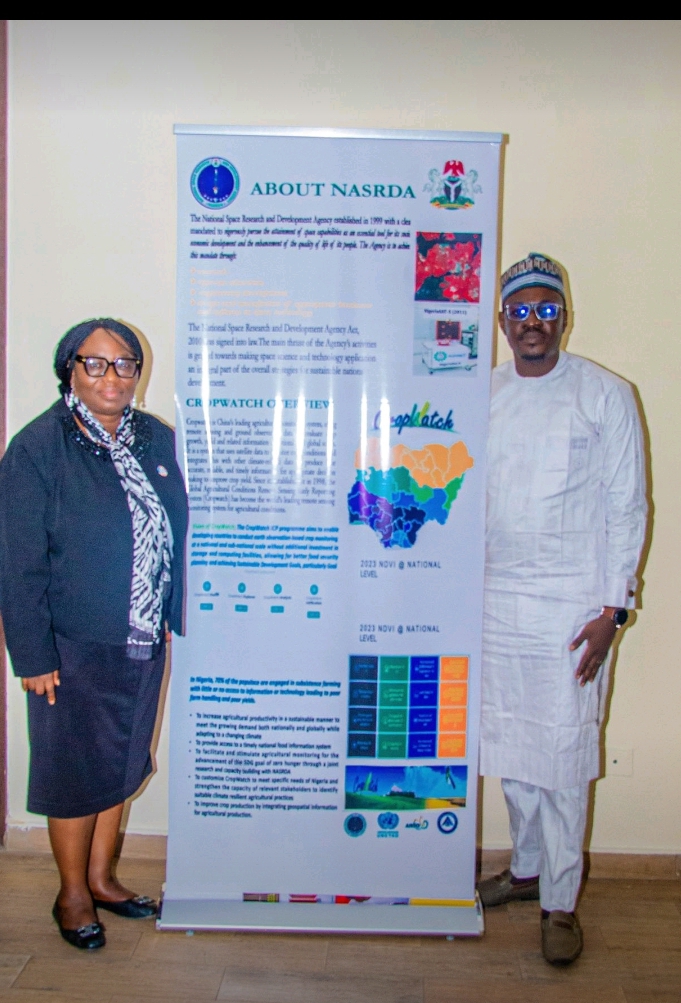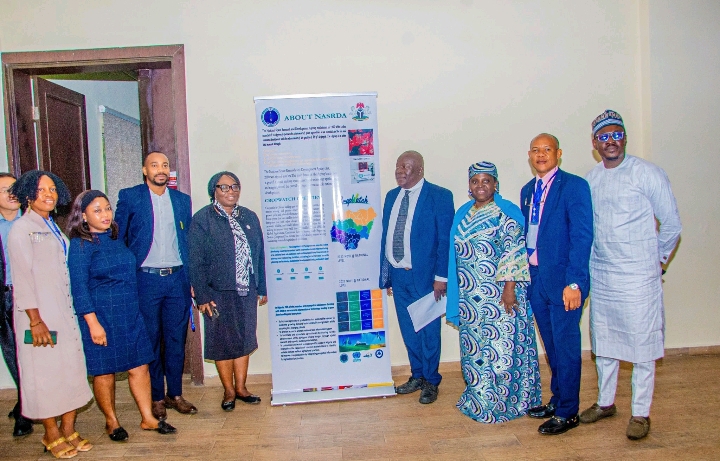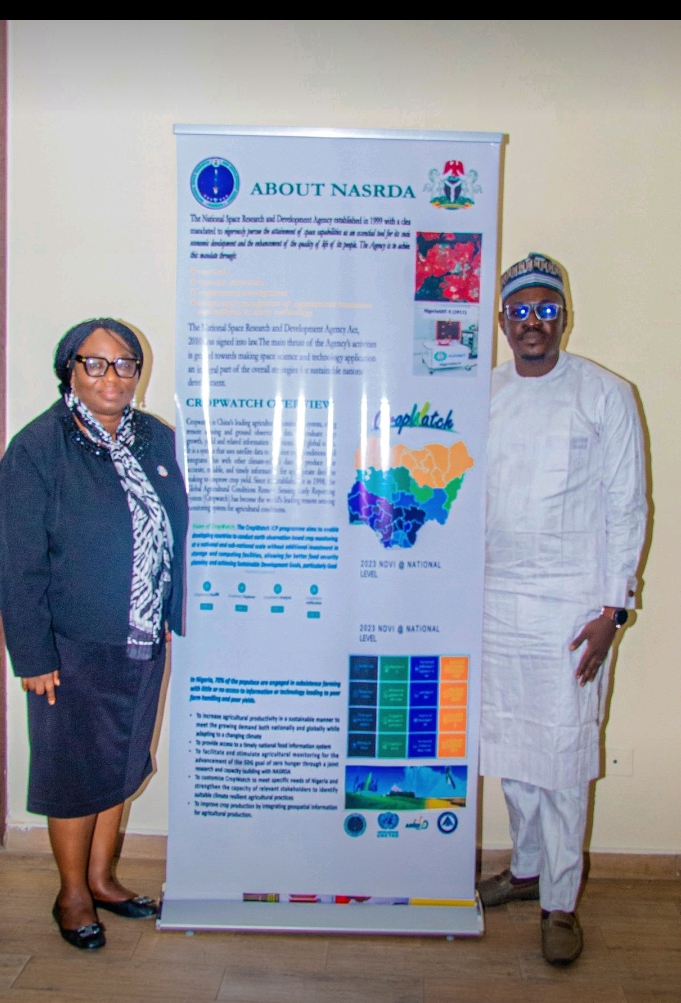Digitalization in Agriculture, NASRDA and CropWatch Host Regional Food System Workshop in Abuja Nigeria.
By Raymond Enoch
The future of food security in West Africa is taking a digital leap forward, as experts, innovators, and policymakers gathered in Abuja, Nigeria from July 1st to 3rd, 2025, for a groundbreaking event titled “How Digitalization is Transforming Regional Food Systems in West Africa.”

Organized by the National Space Research and Development Agency (NASRDA) in collaboration with CropWatch, the event brought together regional stakeholders to explore how cutting-edge technologies are reshaping agriculture, improving productivity, and strengthening food resilience across the West African sub-region.
The three-day Workshop featured high-level panels, interactive workshops, and technology showcases, focusing on the integration of digital tools such as satellite data, remote sensing, artificial intelligence, and geospatial analysis in agricultural planning and food system management.

Speaking at the opening ceremony, NASRDA Director General, Dr. Mathew Olumide Adepoju emphasized the role of space-based technologies in supporting smart agriculture and combating food insecurity. “Digitalization is not a luxury—it is a necessity for sustainable food systems,” Dr. Adepoju stated. “Our partnership with CropWatch demonstrates how innovation can bridge gaps in data, policy, and practice across national borders.”
CropWatch, a global agricultural monitoring system powered by satellite technology, presented new advancements in early warning systems, crop yield prediction, and climate impact assessments. Delegates from ECOWAS member states, development partners, and agricultural research institutions participated in strategy sessions aimed at fostering regional collaboration and data sharing.

In a powerful remark during the event, Dede Ekoue, Country Director of the International Fund for Agricultural Development (IFAD) in Nigeria, underscored the urgency of embracing innovation. “Digitalization is no longer optional—it’s central to transforming food systems across Africa,” Ekoue stated, adding that inclusive, technology-driven agriculture is key to empowering smallholder farmers and ensuring long-term food security.
Also present was the United Nations Conference on Trade and Development (UNCTAD), which partnered in the forum to advance digital trade and agricultural market integration strategies across the region. UNCTAD representatives emphasized the importance of enabling policy environments that can support digital infrastructure and cross-border data flows critical to modern agri-food systems.
Among the key outcomes of the conference was the Abuja Declaration on Digital Agriculture, a communique that outlines a shared vision for adopting digital tools to enhance food system governance, improve smallholder farmer access to technology, and strengthen the region’s ability to anticipate and respond to climate-related food crises.
Participants stressed the importance of building digital literacy among farmers, investing in infrastructure, and ensuring that innovations are inclusive and gender-sensitive.

“This is more than a conversation—it is a movement,” said Dr. Aissatou Diarra, a representative of the West African Food Systems Initiative. “West Africa must lead in transforming its food systems through technology, and events like this are laying the foundation.”
As climate challenges continue to threaten food production across the region, the Abuja forum signaled a clear commitment from West African stakeholders to harness the power of digitalization—not just to survive, but to thrive.










